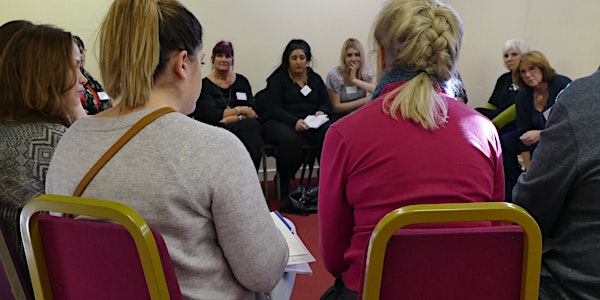
GAPS Workshop: Difficult Conversations - Swansea - June 2019
Date and time
Location
Quaker Meeting House
Pagefield House Page Street Swansea SA1 4EZ United KingdomDescription
Difficult Conversations on the Frontline - Managing the Tensions between Care and Control
What makes some conversations so difficult in social work and what strategies can we employ to help us stay on course?
People bring their own histories of trauma and disturbance which affect their personality development and their relationship with help. Some people feel compelled to deny or minimise their difficulties, resisting or repelling the very help they need. They may disrupt their own progress and the efforts of others, or feel driven to deceive or mislead those who are investigating the truth. These defensive processes can make it very hard to be empathic and to develop effective relationships with parents and carers in the interests of their children.
In this research-based workshop we will look at how these more tricky aspects of our clients’ behaviour can influence what happens during home visits and interviews:
- How we can find ourselves manoeuvred into a corner or onto the back foot when talking with clients about serious matters.
- How we can end up diverted from important issues or distracted from something (or someone) we were 'not supposed to see'.
- How time can pass too quickly or too slowly during a home visit leaving us feeling our task wasn’t done or we couldn’t get away.
- How something about the home made it impossible for us to think
- How we felt unable to mention the very thing we went there to say and we can’t understand why.
This highly interactive, powerpoint-free workshop draws on research with Children and Families work, but stimulates thoughts and discussion about what helps or hinders engagement with clients across the social work sphere. Please bring ongoing casework difficulties to spark ideas and active problem-solving with each other in a safe space.
Fiona Henderson is an experienced clinical psychologist and psychoanalytic psychotherapist. For many years she worked with families in care proceedings as Consultant Psychotherapist in the Monroe Family Assessment Service at the Tavistock Clinic, London. She has conducted research into home visits and written about social work supervision and disturbed parenting. She works in a family psychotherapy service in Shropshire and provides online training and therapeutic supervision to frontline practitioners.
Organised by
GAPS is a registered charity promoting relationship-based approaches, and psychodynamic and systemic thinking in social work. We receive an income from our ownership of the Journal of Social Work Practice which we use to fund activities for front-line social work practitioners and managers – such as one-day workshops and seminars, as well as our annual essay award for social work practitioners and students.
In 1980s, a group of social workers interested in working with psychodynamic ideas established GAPS (Group for the Advancement of Psychodynamics and Psychotherapy in Social Work) and the Journal of Social Work Practice. Since that time, GAPS has promoted the importance of relationship-based approaches in social work, and therapeutic, psychodynamic and systemic perspectives – perspectives that are central to the editorial policy of the Journal of Social Work Practice, which is owned by the GAPS membership.
Journal of Social Work PracticeThis ISI ranked, refereed Journal publishes four issues each year and, as such, it is one of the few social work journals that is centrally concerned with promoting the importance of working therapeutically with the children and adults. The Journal has a wide international readership and editorial correspondents, and attracts regular contributions from abroad. Every issue includes papers that are drawn from a wide spectrum of therapeutic interest, including book reviews, commentaries and conceptual themes that explore psychodynamic and therapeutic ideas and ways of working. Also, the Journal regularly publishes special editions where the focus is on specific themes - such as the importance of relationship-based approaches; the importance and impact of defences in social work; work with children; work with adults; etc. The Journal is published and distributed by Taylor and Francis; members are sent four copies of the Journal a year, and can also access a range of other benefits and resources.
If you have a question or would like more information about GAPS or our events, please get in contact with the Project Co-ordinator, Hannah Pepper by email hannahpepper@gaps.org.uk or by phone 07714 237107